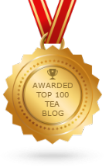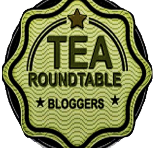Chances are, if you drink Black, Green, Oolong or White Tea on a daily basis, you've never experienced an adverse reaction. I'm talking about regular, straight tea in its finest, purest form - nothing added. Sometimes, we refer to these as Varietals. But Tea has evolved. We flavor them, add flowers to it, blend it with fruits, mix it with spices, enhance it with herbs. We lump everything under the broad category of Tea whether it is real Tea or not. Here is a quick look at popular beverages all considered Tea even though none is:
Peppermint: Mentha piperita
Chamomile: Matricaria chamomilla
Rooibos: Aspalathus linearis
Lemongrass: Cymbopogon
Yerba: Ilex paraguariensis
Tea, of course, comes from the Camellia Sinensis plant! In addition to mingling herbs into the Tea category, we've expanded the entire Tea family through the addition of botanicals, fruits and nuts. Some of these contain Allergens and you will notice more and more that these will be identified on Tea packages. The 8 major allergens identified by the FDA are:

Of the above, the broad category of Tea can include some of the above. If, however, you only drink Tea that is Black, Green, Oolong or White and enjoy it in its unadorned form without the addition of other ingredients such as flavoring, flowers, botanicals or additives, you need not worry about these common Allergens. But if you are one of those that do need to be concerned about Allergens, here is a list of our Teas that contain them:
Almonds: Evergreen, Grand Tisane, Noel, Spice of Ice, Toasted Almond
Milk: Johannesburg, Mama Bahama, Mango Flip, Phoenix.
Soy Lecithin: Chocolate Chai, Johannesburg, Phoenix.
Coconut: Coconut Vanilla, Sencha Tropic, Coconut Chai, Red Jamaica, Pina Colada, Mama Bahama, Organic Rooi Coconut, Mango Flip.
And, as always, if you have a doubt, please ask!



